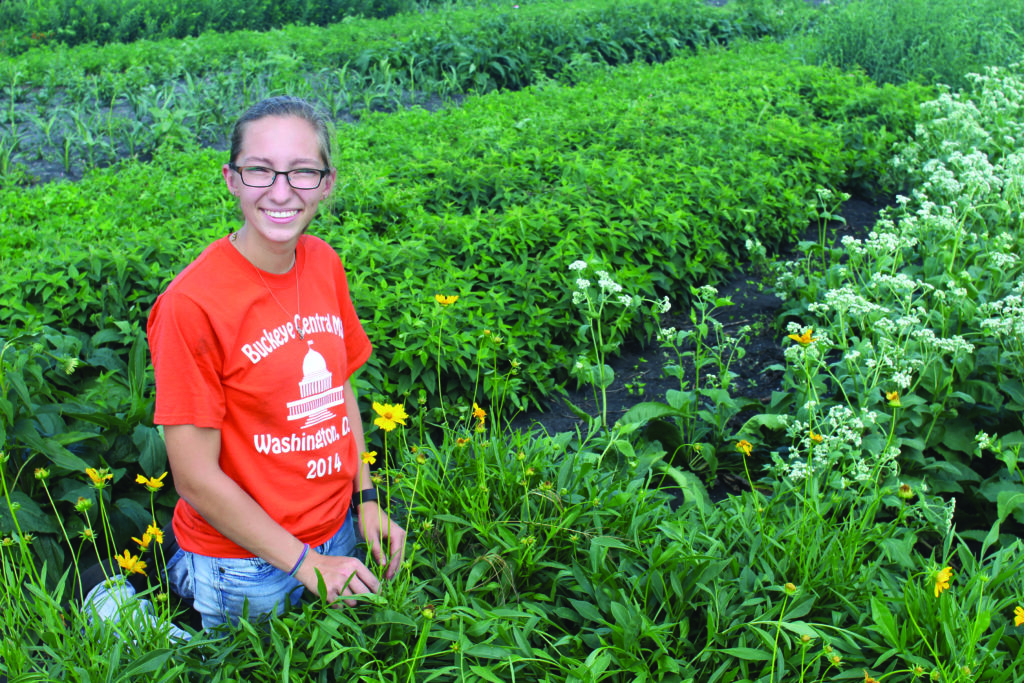

Mar 7, 2019Muck fields may attract bees to aid pollination
The causes of pollinator decline have been well-documented, but research at Ohio State University’s Muck Farm near Willard, Ohio, is trying a new approach of putting pollinator habitat in strips among the vegetable crops.
“Can we see an increase in bee numbers? Can we see an increase in the types and diversity of wild bees in areas where muck soils predominate?” asked Elizabeth Long, assistant professor in Ohio State University’s Entomology Department. “If we make these resources available, will they come? Will these fields be more attractive to bees?”
The concept has some hurdles. Muck soil is extremely valuable and growers want every acre in production. There’s also the issue of putting bee habitat in the middle of intensively-managed crops. “Attracting bees into this area is risky because vegetables are intensively managed and lots of chemicals are used,” Long said.
However, research out of Purdue University indicates an in-field location may not be that much more detrimental to bees than locations outside of the field.
The research centered on neonicotinoid insecticides which are commonly used on corn. Neonicotinoid insecticides are effective against a broad range of pests and have low toxicity for vertebrates. The chemical also has a high, water solubility that makes it systemic in the plant.
This research measured the amount of pesticides in the pollen honeybees gathered from three areas – non-agricultural areas, areas adjacent to corn grown from neonicotinoid-treated seed, and areas adjacent to corn grown from untreated seed.
Researchers identified 29 pesticides in the pollen collected over the season in the non-agricultural areas. There were 31 pesticides identified in the pollen collected from areas adjacent to corn grown from untreated seed and 28 pesticides in the pollen from areas adjacent to corn grown from neonicotinoid-treated seed.
“Regardless of where their hives were placed, honeybees were all exposed to very similar levels of pesticides in the pollen they were bringing back to the hive,” Long said.
The study also analyzed the collected pollen to identify the plant of origin.
Researchers found most of the pollen the bees were bringing back to the hive came from non-cultivated plants, such as red clover and ragweed. “There were all kinds of pollen collected,” Long said, “but most of it came from non-cultivated
plants and that’s alarming. It shows these pesticides are showing up in the pollen of non-treated plants.”
The presence of large numbers of pesticides in the pollen occurred throughout the growing season. “It’s not one or two pesticides this week and then a couple different ones over the next few weeks,” Long said. “Bees are continually exposed to pesticides in their environment.”
This raises the question as to whether an intensively-managed vegetable field is really that much more hostile to bees than other areas.
Ten species of native perennials are being studied as pollinator habitat. Thelist includes purple prairie clover, dense blazingstar, butterfly milkweed, wild bergamot, stiff goldenrod, New England aster, lanceleaf coreopsis, beardstongue, rattlesnake master and mountain-mint. The perennials offer yellow, orange and white blossoms, and a range of purple blossoms.
“We want to provide pollinators a variety to choose from and to find out which flowers the bees are visiting,” Long said. Another goal is to find out if the habitat improves fruit set and seed set in nearby crops.
“The native species are easy to grow,” Long said. “They can outcompete weeds, need little care, protect against wind erosion – which is a big one on muck – and are aesthetically pretty. We want to know if this could be a good investment for growers.”
– Dean Peterson, VGN correspondent
Above: Kendra Stahl, summer employee at the Muck Farm, is evaluating stand establishment in this first year of the study. Photo: Dean Peterson














